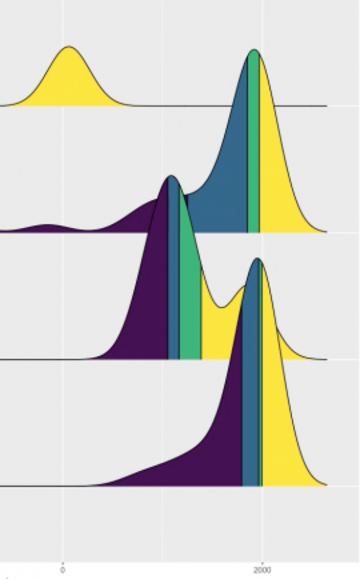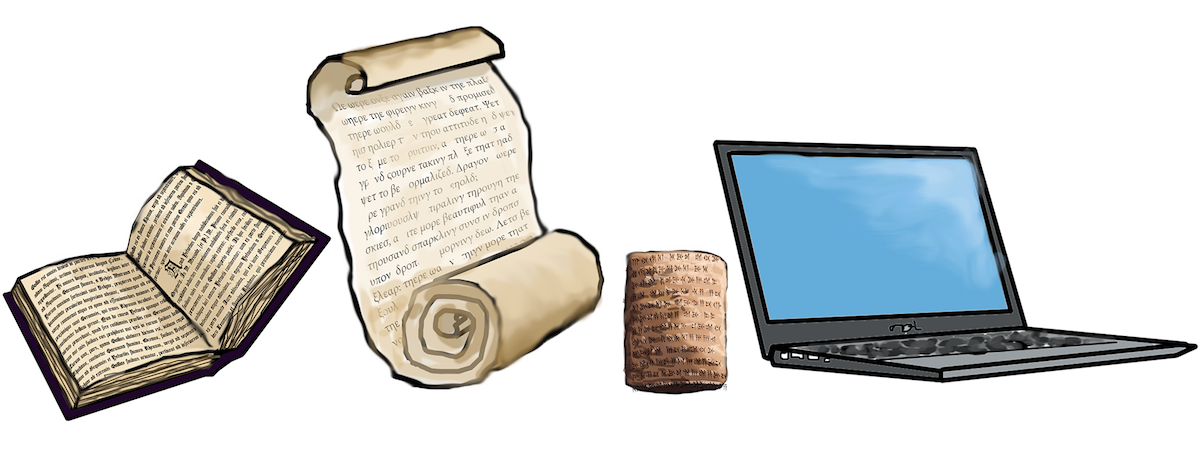Cybertext Technologies

The CyberText Technologies Project, headed by Professor Elaine Treharne, is funded by Stanford University School of Engineering CyberInitiative. Our project team has been cataloguing the history of dominant text-based human communication devices in an effort to identify common traits. These determinable traits could theoretically be used predictively to assess which modern-day technologies are most likely to succeed and what paths imminent text technologies may take. The project is responsible for creating a series of standardized measuring tools and schemas for analysis of these objects, as well as case-study databases for dominant text technologies ranging from Cuneiform tablets to modern-day print. From our databases, machine learning assesses the patterns that will help in forecasting the future of text technologies.
The team--Elaine Treharne and Mateusz Fafinski with Celena Allen, Jessica Beckman, Clare Tandy, HB Klein, Kim Ngo, Liz Fischer and Dylan Bedford--has now assembled a meticulously curated database of major text technologies, the characteristics of which (e.g., portability) have been determined with objectively verifiable measurements. Our database (a whole book in itself!) is tested against very large comparable datasets for validation. Our algorithms are demonstrating, unequivocally, that all text technologies show similar patterns within their life cycles, whether those cycles are long or short. Such patterns can now be mapped onto contemporary technologies to demonstrate the ways in which these might develop into the future. We might be able to reveal, then, what makes for successful future technologies, because of the amazing story our historical data tells.
